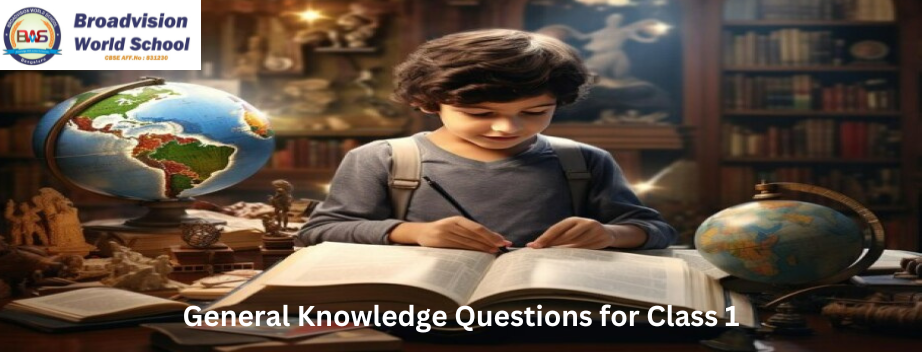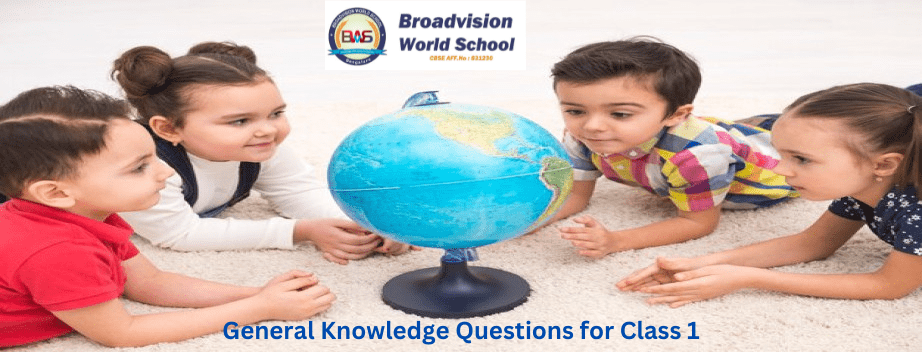Giving your child the best start in life
-
First Floor, 10A Chandos Street London New Town W1G 9LE
Get In Touch
Monday to Friday: 8.30am – 02.00pm
Saturday, Sunday: Close
Email: user@domainname.com
Phone: +44 (0) 207 689 7888

GK stands for General Knowledge. It’s all the information and facts about the world around us, like countries, animals, history, and more. GK is important for students because it helps them understand the world better. When you know about different things, you can make better decisions, talk about interesting topics, and even do well in school. GK also helps students become curious and eager to learn more, which is really good for their brains and their future. So, learning GK is like having a treasure chest full of knowledge that can help you in many ways!
General Knowledge (GK) is important for Class 1 Students because it helps them learn about the world around them. When children know about different things like animals, plants, countries, and famous people, it makes them curious and helps them understand more about their surroundings. GK also helps children develop their thinking skills, memory, and understanding of different cultures and places. Plus, it can make learning more fun and interesting for them. So, even though they’re young, learning some basic GK can be really helpful for Class 1 Students!

– Answer: The colour of the sky during the daytime is Blue.
– Answer: We have Five fingers in one hand.
– Answer: The lion is called the “King of the Jungle.”
– Answer: Mount Everest holds the title of being the tallest in the world.
– Answer: the Shape of a circle is Round
– Answer: A cat and dog have Four legs.
– Answer: The opposite of hot is Cold.
– Answer: The colour of banana is Yellow.
– Answer: The largest planet in our solar system is Jupiter.
– Answer: There are Four seasons (Spring, Summer, Autumn, Winter) in a year.
– Answer: We use Telescope or Binoculars to see things far away.
– Answer: The vowels in the English alphabet are A, E, I, O, and U.
– Answer: The colour of grass is Green.
– Answer: Ostrich lays the largest eggs.
– Answer: Jawaharlal Nehru was India’s very first Prime Minister. We celebrate children’s day on 14th November to honour children on his birthday.
– Answer: There are Seven days in a week.
– Answer: The place where birds live is called Nest.
– Answer: Penguin can’t fly but it’s an excellent swimmer.
– Answer: We use Clock or Watch to see time.
– Answer: Hummingbird is the smallest bird in the world.
– Answer: Bangalore is the capital city of Karnataka.
– Answer: The colour of a tomato is Red.
– Answer: Cow says “moo”.
– Answer: Autumn or Fall
– Answer: A triangle have three sides.
– Answer: Dog says “Bow wow”.
– Answer: Camel is called the “Ship of the Desert”.
– Answer: The colour of the Sun is Yellow.
– Answer: We use Scissors to cut paper.
– Answer: The “Red Planet” is Mars because its surface is covered with reddish iron oxide, also known as rust.
– Answer: Small is the opposite of big.
– Answer: A human have Two eyes.
– Answer: The giraffe is the tallest animal on Earth, with a height reaching up to 18 feet (5.5 meters) or more.
– Answer: The baby of a Dog called puppy.
– Answer: Mango holds the title of being called the “King of Fruits.”.
– Answer: We use Toothbrush to clean our Teeth. We clean our teeth to keep them healthy and strong, remove food bits and germs, and prevent bad breath.
– Answer: Fish lives in water and has gills.
– Answer: The colour of the ocean is Blue.
– Answer: The National animal of India Tiger.
– Answer: Night is the opposite of day.
– Answer: Winter is one of the four seasons of the year. It comes after autumn and before spring. In winter, the weather becomes colder. Sometimes it snows, and everything gets covered in snowflakes.
– Answer: People wear warm clothes like sweaters, jackets, gloves, and hats to keep themselves warm in winter.
– Answer: The rainy season usually happens after the hot season or summer. During the rainy season, there is a lot of rain which helps plants grow and fills up rivers and lakes.
– Answer: People use umbrellas or raincoats to stay dry when they go outside during the rainy season. They also plant crops that need lots of water.
– Answer: Summer is a season that comes after spring and before autumn. It is usually warm or hot, and the days are longer than nights. The sun shines brighter, and there is often less rain.
– Answer: It’s important to drink water in summer because we sweat more in the heat, and drinking water helps keep us hydrated and healthy.
– Answer: The process of water turning into vapor is called evaporation. When the Sun heats up water, it causes the water to turn into vapor and disappear into the air.
– Answer: Slow is the opposite of fast.
– Answer: A rainbow is made up of seven beautiful colours. These colours are red, orange, yellow, green, blue, indigo, and violet. When sunlight passes through raindrops in the sky, it bends and splits into these different colours which we sometimes see after rain showers.
– Answer: A chameleon can change its colour to blend with its surroundings.
– Answer: We get wood from trees.
– Answer: We can make furniture, buildings, papers, and other useful items from wood.
– Answer: Water can be found as solid (ice), liquid (water), and gas (water vapor).
– Answer: The opposite of tall is Short
– Answer: A bicycle have Two wheels.
– Answer: We use Bulb or Lamp to light a room.
-Answer: There are 365 days in one year.
– Answer: Water is important for living things because we need it to drink, to grow plants, to clean ourselves, and for many other things. It also helps animals and plants to survive.
– Answer: We can find water in rivers, oceans, lakes, ponds, streams, and even underground in the form of groundwater.
– Answer: Water covers approximately 71% of the Earth’s surface.
– Answer: Plants produce their own food using a process known as photosynthesis. They need sunlight, water, and carbon dioxide to make food.
– Answer: Zebra is known for its black and white stripes.
– Answer: It is important to reduce waste because it helps protect the environment, keeps our surroundings clean, and conserves natural resources.
– Answer: It’s important to take care of plants and animals so they can live happily and our world stays beautiful.
– Answer: Dry is the opposite of wet.
-Answer: Turning off the lights when we leave a room helps save electricity and keeps the Earth healthy.
– Answer: the baby of a cat called Kitten.
– Answer: This Process is called Recycling
-Answer: We compost to turn food scraps and plant waste into nutrient-rich soil that helps plants grow strong and healthy.
– Answer: Elephant has a long trunk and tusks.
– Answer: Carbon Dioxide is absorbed by plants.
– Answer: The planet nearest to Earth is Venus.
– Answer: There are seven continents in the world: Africa, Antarctica, Asia, Europe, North America, Australia and South America.
– Answer: The National bird of India is Peacock.
-Answer: Recycling is important because it helps to reduce pollution and saves our natural resources, like trees, water, and minerals.
– Answer: The opposite of light is Dark
– Answer: The largest ocean in the World is Pacific Ocean.
– Answer: There are 26 letters in the English alphabet.
– Answer: There are 24 hours in a day.
– Answer: There are 60 minutes in an hour.
– Answer: There are 60 seconds in a minute.
– Answer: Teachers’ Day is celebrated on September 5th in India to honour Dr. Sarvepalli Radhakrishnan. We celebrate Teachers’ Day to show our appreciation and respect for our teachers and their hard work in helping us learn and grow.
– Answer: The smallest month of a year is February.
-Answer: Milk is provided by cows and goats.
– Answer: The baby of a cow called Calf
– Answer: Turtle has a shell and lives in water.
– Answer: Diwali is known as the festival of light.
– Answer: Eagle is known for its ability to fly high.
– Answer: India has 28 states.
– Answer: Vande Mataram is the National song of India.
– Answer: Hockey holds the status of being India’s national game.
– Answer: Holi is called the festival of colours.
– Answer: The main cause of air pollution is the release of harmful substances into the air, such as smoke from factories and vehicles, dust, and chemicals.
– Answer: New Delhi is the capital of India.
– Answer: A week consists of seven days.
– Answer: Every year on August 15th, we celebrate Independence Day to honour India’s freedom from British rule
– Answer: Lotus flower is the national flower of India.
– Answer: Monkey is known for its ability to climb trees.
– Answer: Jana Gana Mana is recognized as the National Anthem of India.
– Answer: Mahatma Gandhi is the Father of our Nation.

learning about different things helps Class 1 children understand the world better. It makes them curious and helps them think about things in new ways. It also helps them talk and share their ideas with others. So, having good General Knowledge at a young age can make learning easier and more fun for them
Broadvision World School employs interactive activities, storytelling, visual aids, and hands-on experiences to make learning General Knowledge enjoyable for Class 1 Students. Through games, group discussions, and multimedia resources, students engage with the material in a stimulating way.
The school carefully selects and tailors the General Knowledge content to suit the cognitive abilities and interests of Class 1 Students. Topics are presented in a simple and understandable manner, avoiding complex concepts that may be beyond their comprehension level.
Yes, parents are encouraged to actively participate in their children’s education at Broadvision World School, including helping them learn General Knowledge. The school may provide resources, suggestions, and activities for parents to engage their children in learning outside the classroom.
The General Knowledge curriculum for Class 1 Students at Broadvision World School covers a wide range of age-appropriate topics, including animals, plants, countries, cultures, basic science concepts, famous personalities, and important events in history.
Broadvision World School uses a variety of assessment methods, such as quizzes, oral presentations, projects, and observations, to evaluate Class 1 students’ progress in acquiring General Knowledge skills. Teachers regularly monitor students’ engagement and understanding of the content and provide feedback to support their learning journey.

Comments are closed